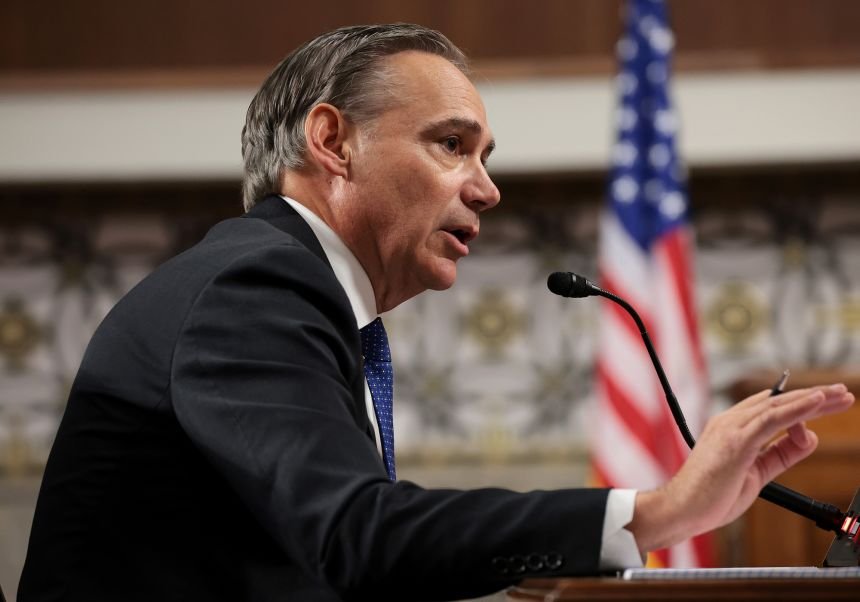Elon Musk said Donald Trump should be impeached and that he was covering up his ties to an accused sex trafficker. Mr Trump said Mr Musk, whom he had put in charge of eliminating waste and fraud in the government, had ignored the easiest way to do the job, cutting his own government contracts. He also said Mr Musk had lost his mind. Do any of these accusations matter? Probably not, at least not nearly as much as they seemed to at the time, lo these few days ago, when they were riveting national and even global attention.

Already, in a concession to the leverage each man holds, the two are making nice with each other. Illegal immigration, the problem that has always made Mr Trump beloved by his base and at least acceptable to enough other Americans, helped the president change the subject and the businessman reingratiate himself. Mr Musk tweeted approvingly about Mr Trump’s militarised response to demonstrations in Los Angeles that turned violent, and Mr Trump told reporters he wished Mr Musk “very well”. By June 11th Mr Musk was publicly regretting “some” of his posts.
Since Mr Trump began taking control of the Republican Party more than a decade ago, it has often been noted that he was succeeding in “normalising” behaviour that would have once scandalised members of both parties, from freely using expletives in speeches to scoffing at the sacrifices of American war heroes to making outrageous insinuations about adversaries—whether that Barack Obama was a foreign-born Muslim, that Ted Cruz’s father had a link to the killing of John F. Kennedy or that Kamala Harris was cognitively impaired. But “normalisation” has always been the wrong way to think about Mr Trump’s peculiar achievement. If his antics were becoming normal, they would not continue to command the spotlight. An outrage is not outrageous if it is normal.
What Mr Trump succeeds in doing is trivialising obnoxious and even corrosive conduct. Where normalisation still invites accountability—that’s normal, after all—trivialisation defies it. The alliance with Mr Musk has been the most extreme instance of Mr Trump’s politics of trivialisation, in which outrageous abnormality after outrageous abnormality has whetted more interest in speculating about the next abnormality than in weighing the consequences of what has happened. Rather than just move on, let us reckon with a few features of their partnership—so far—that have had little if any precedent in American history.
Mr Musk spent more than a quarter of a billion dollars in a matter of months to help elect Mr Trump last year, including through a “lottery” awarding $1m each day to a registered voter in Pennsylvania. During Mr Trump’s transition, Mr Musk advised him about staff, sat in on his meetings with foreign leaders and accepted responsibility for overhauling the entire federal government. His companies not only had billions in federal contracts; they were subject to more than two dozen federal investigations and enmeshed with governments around the world. The White House waved away concerns about conflicts of interest with assurances that Mr Musk would voluntarily avoid any.
The very name of Mr Musk’s operation, the Department of Government Efficiency, or DOGE, was a joke, a smirking reference to a meme coin Mr Musk had made fun of for years. Mr Musk blitzed minions into targeted agencies to commandeer their information-technology systems and use them to cancel contracts and fire people, apparently without considering what they did. Agencies wound up frantically rehiring specialists who safeguarded nuclear weapons, protected against bird flu or calculated interest-rate tables to rationalise the mortgage market. Thousands of other federal workers have lost their jobs, but the precise number is uncertain because DOGE cuts are still working their way through the courts, and because DOGE’s statistics have proved far less trustworthy than those of the bureaucracy Mr Musk scorned.
The principal agency for foreign development, USAID, was authorised and funded by Congress. But Mr Musk did not ask Congress to reconsider, let alone to grant him permission, before chortling on X that he had sent the agency “into the woodchipper”. No doubt the spending was not all wise. And maybe hundreds of thousands of people have not died already, as one academic has estimated. Still, that number is surely not zero, as the secretary of state, Marco Rubio, testified it was to Congress last month.
“The picture of the world’s richest man killing the world’s poorest children is not a pretty one,” Bill Gates told the Financial Times. That judgment may haunt those in Washington—Mr Rubio used to be one—who valued foreign aid. Still others may remain offended by DOGE’s overpromising, sloppiness and glibness. But all that seems somehow beside the point now, fading as memories of “Liberation Day” should not be but are, as Mr Trump sends the Marines into Los Angeles and works to ram his overstuffed, deficit-amping, DOGE-deriding budget bill through the Senate.
A small beautiful bill
That bill was ostensibly the reason Mr Musk erupted, because it undermined DOGE’s work. He called it “a disgusting abomination”. (Though who would bet he will focus on persuading Republicans to oppose it?) For his part, Mr Trump said during the spat that Mr Musk suffered from “Trump Derangement Syndrome”, brought on by how much he missed working for the president.
As it happens, two House Republicans introduced a bill last month to get to the bottom of this phenomenon. The bill instructs the National Institutes of Health to spend precious federal dollars to “conduct or support research to advance the understanding of Trump Derangement Syndrome, including its origins, manifestations, and long-term effects”. What more perfect demonstration could there be of the syndrome itself?
Subscribers to The Economist can sign up to our Opinion newsletter, which brings together the best of our leaders, columns, guest essays and reader correspondence.








